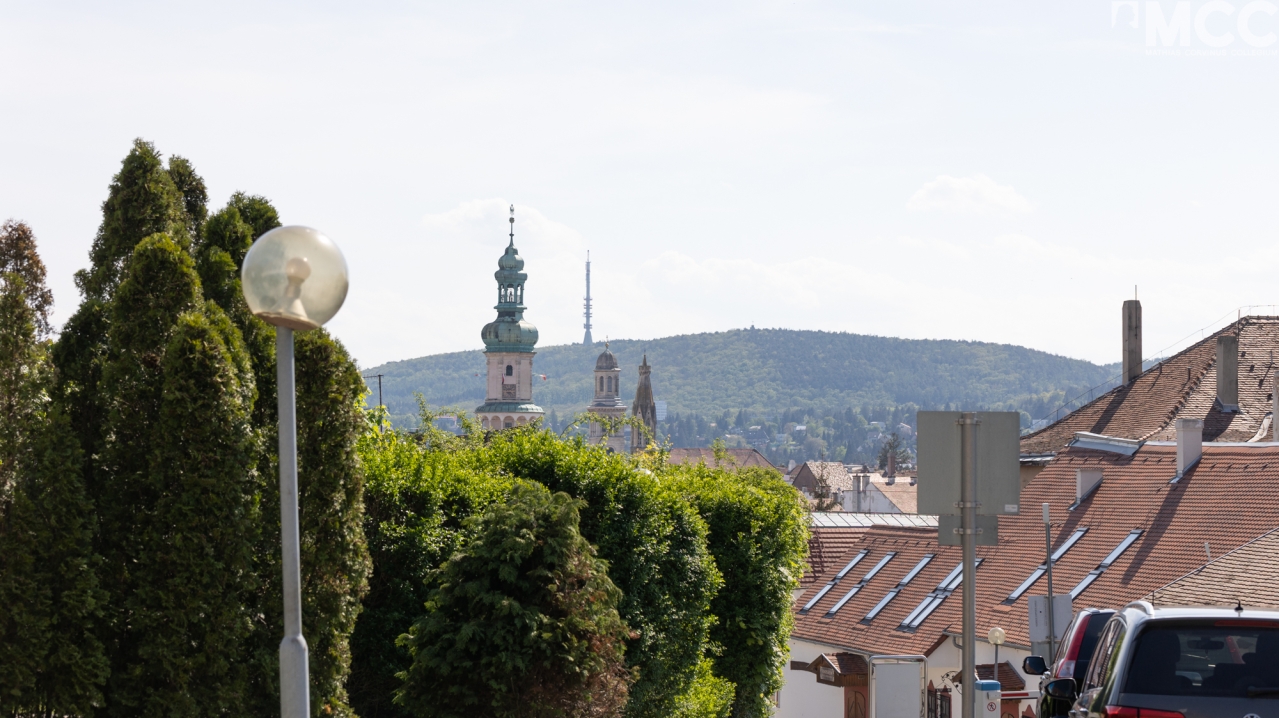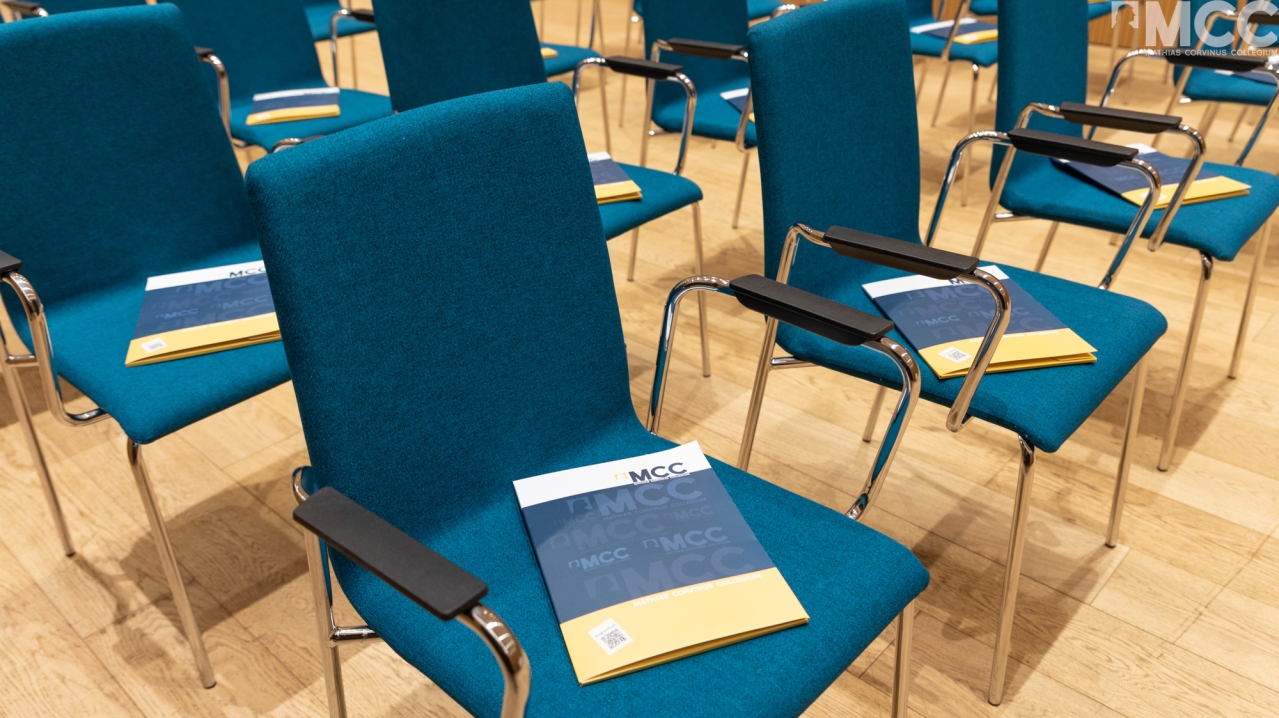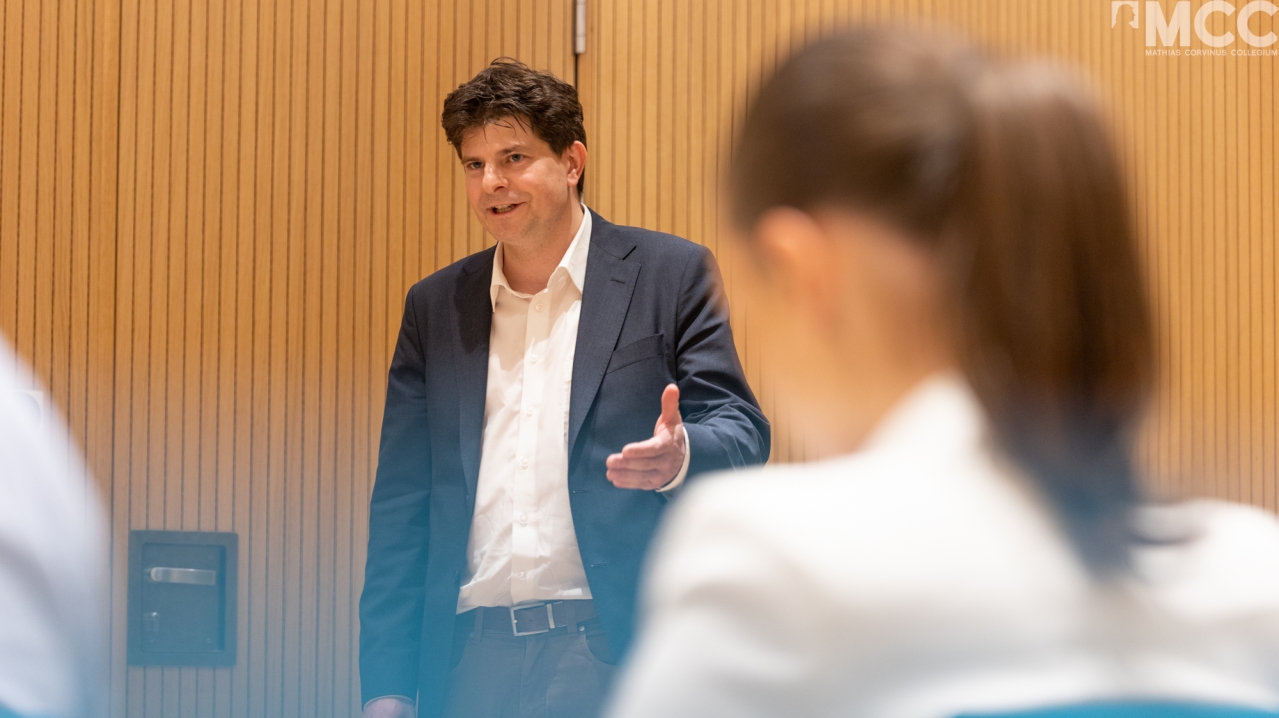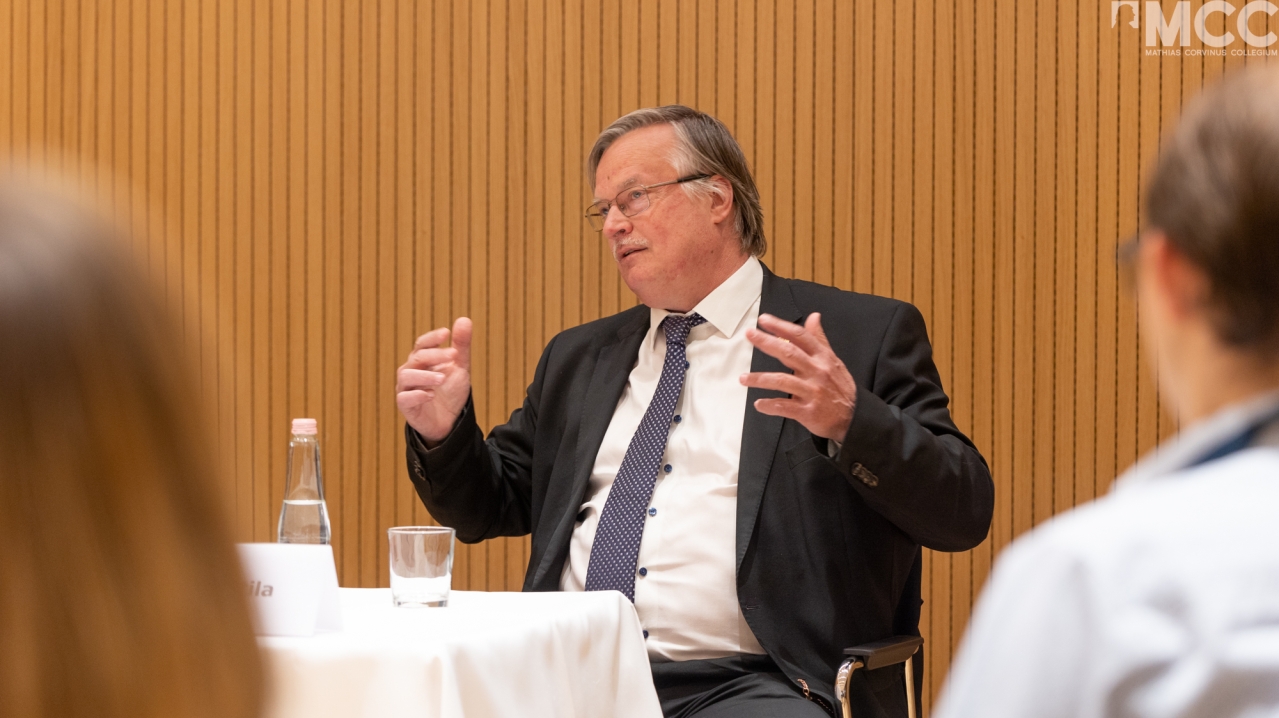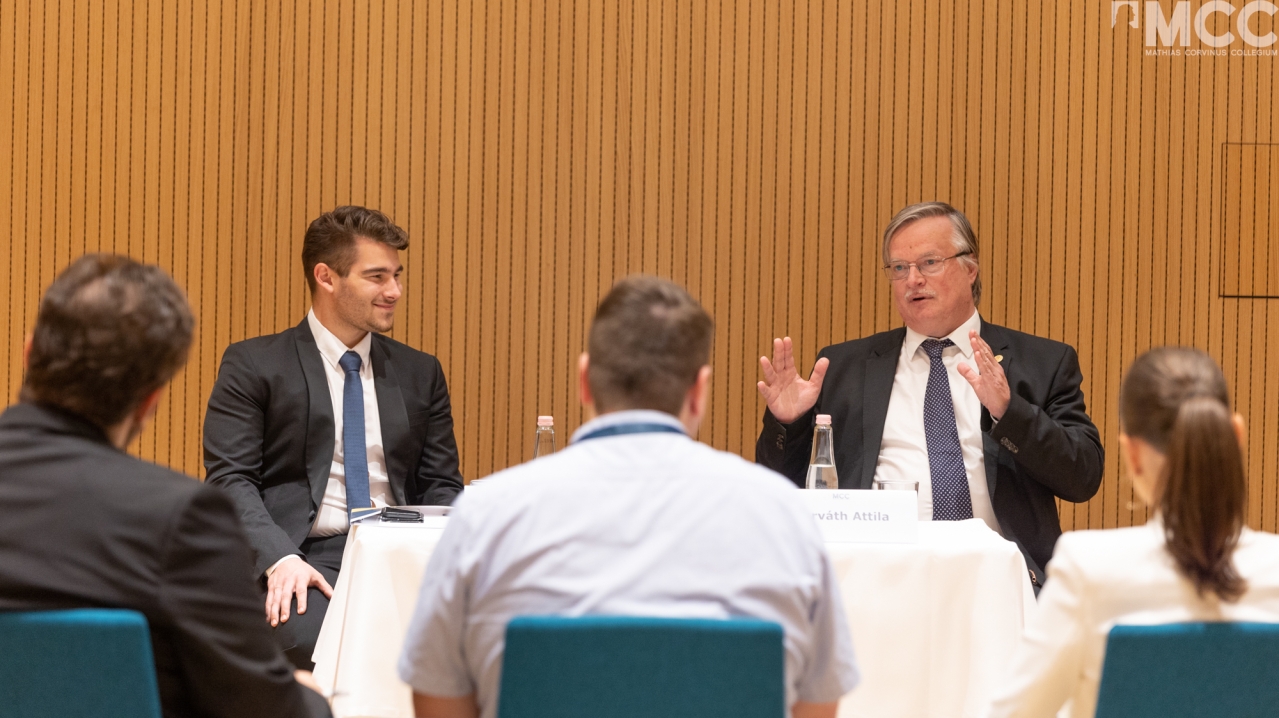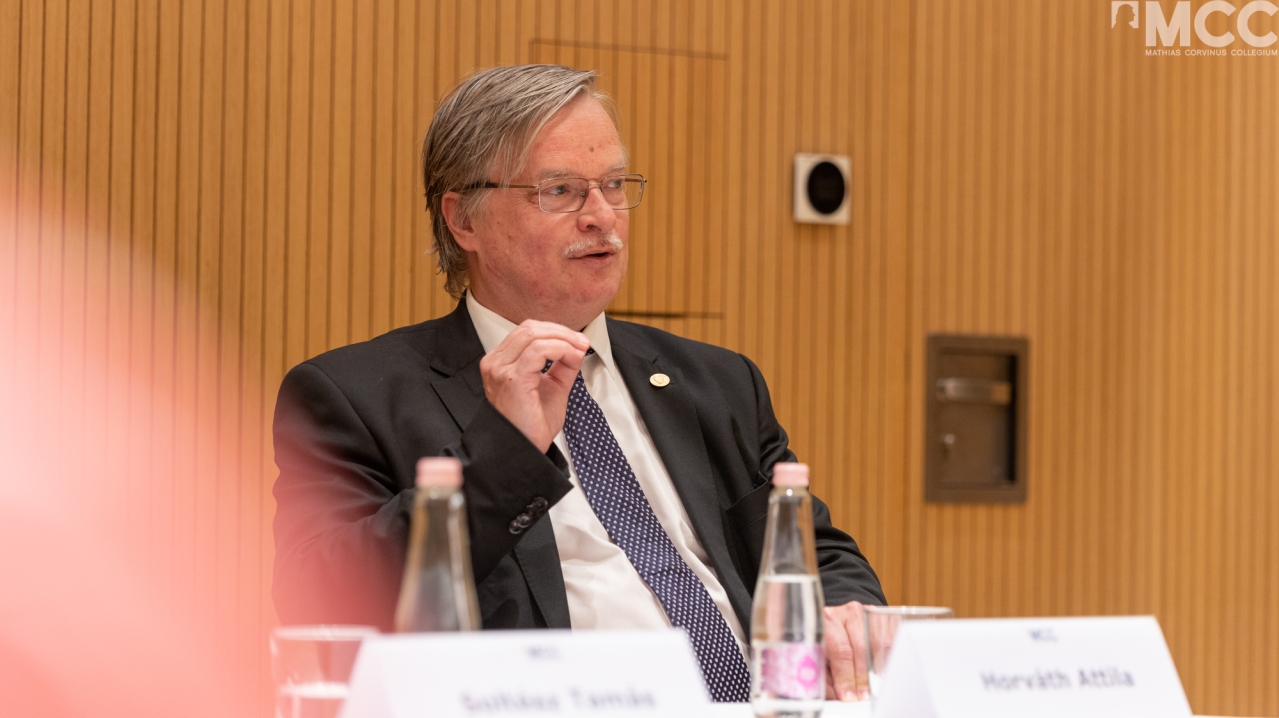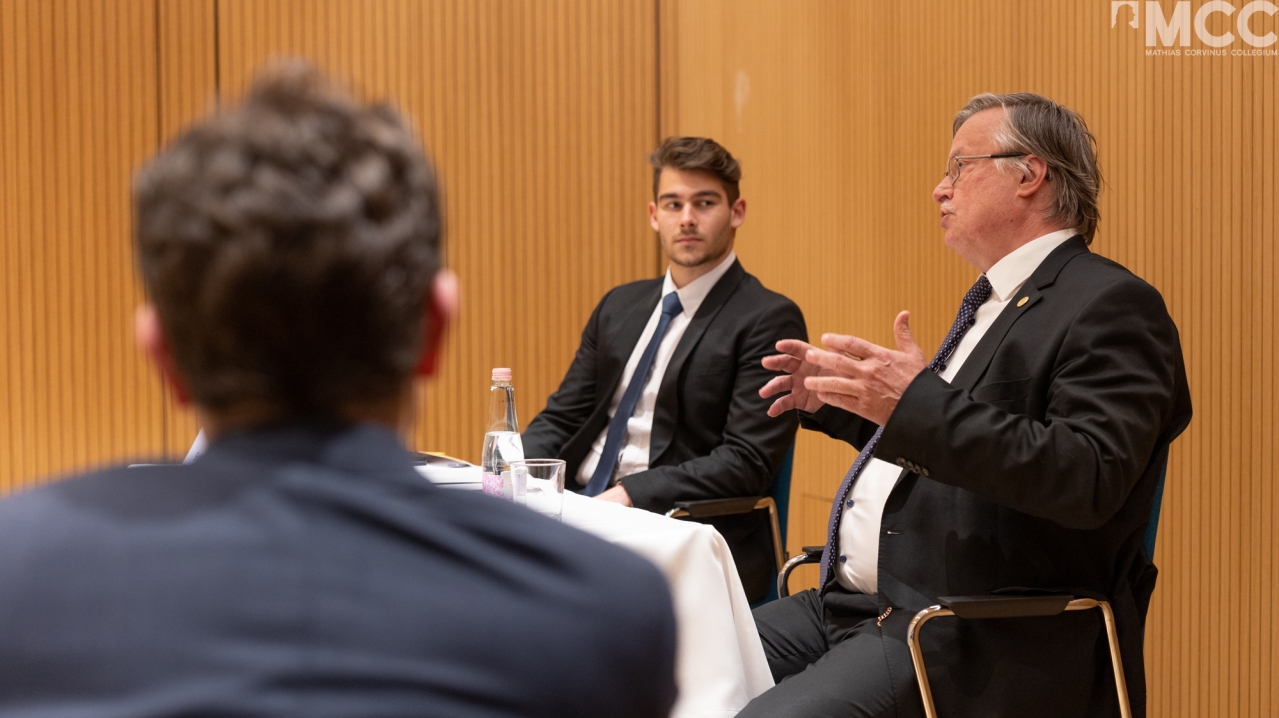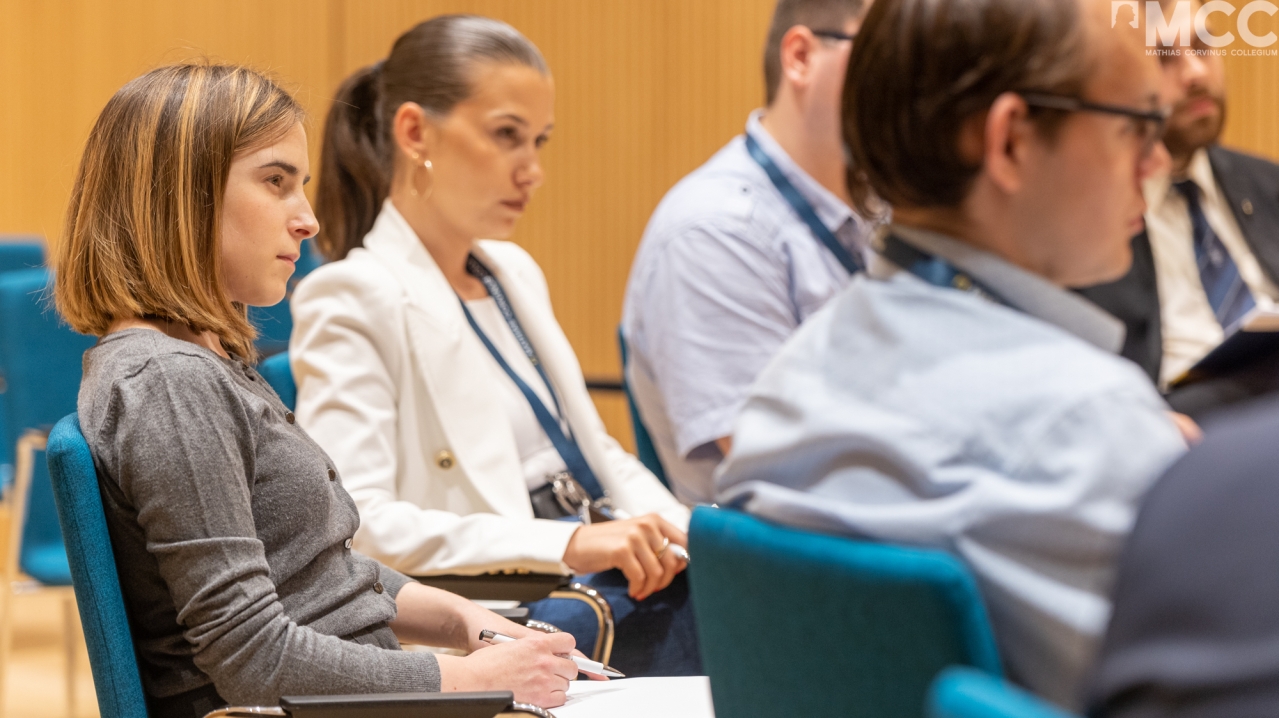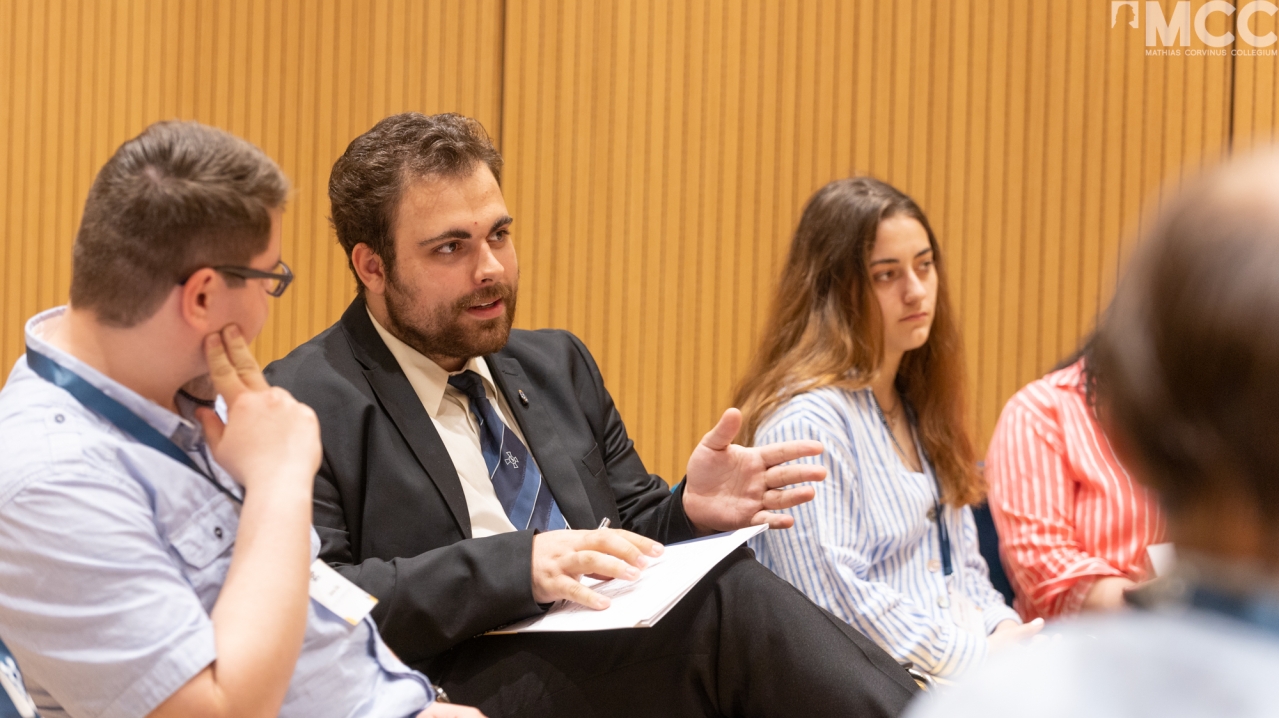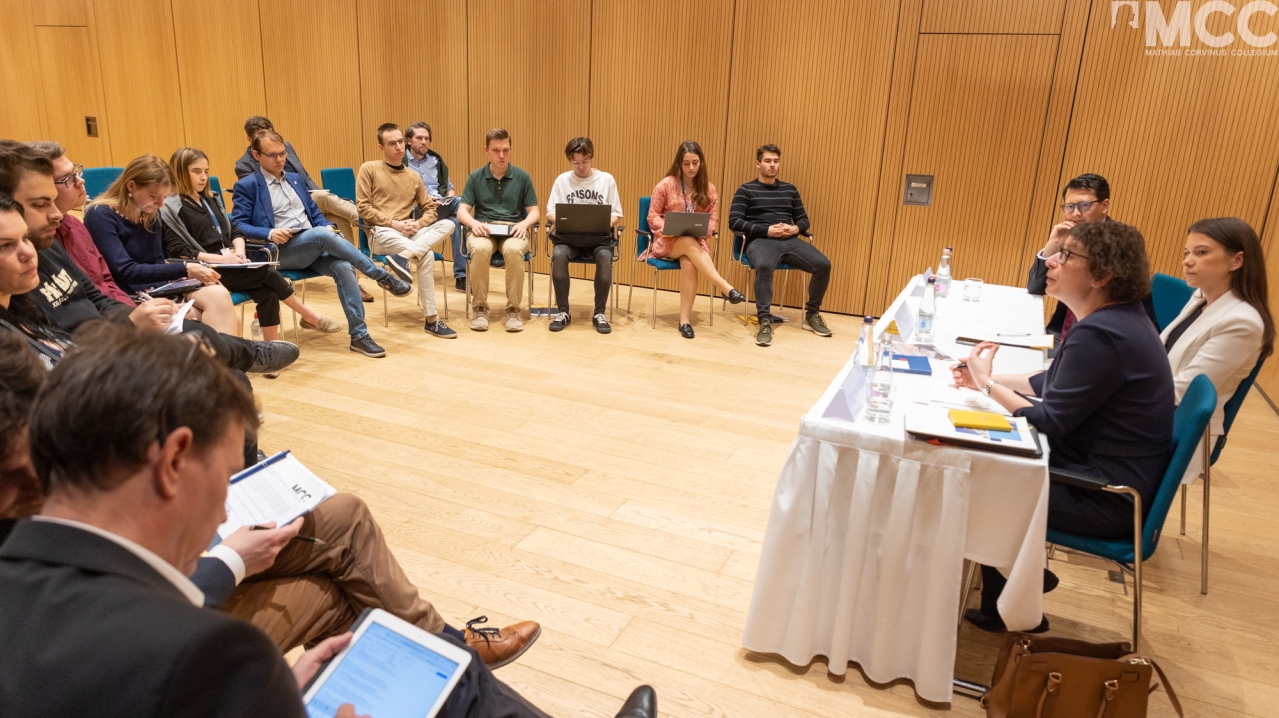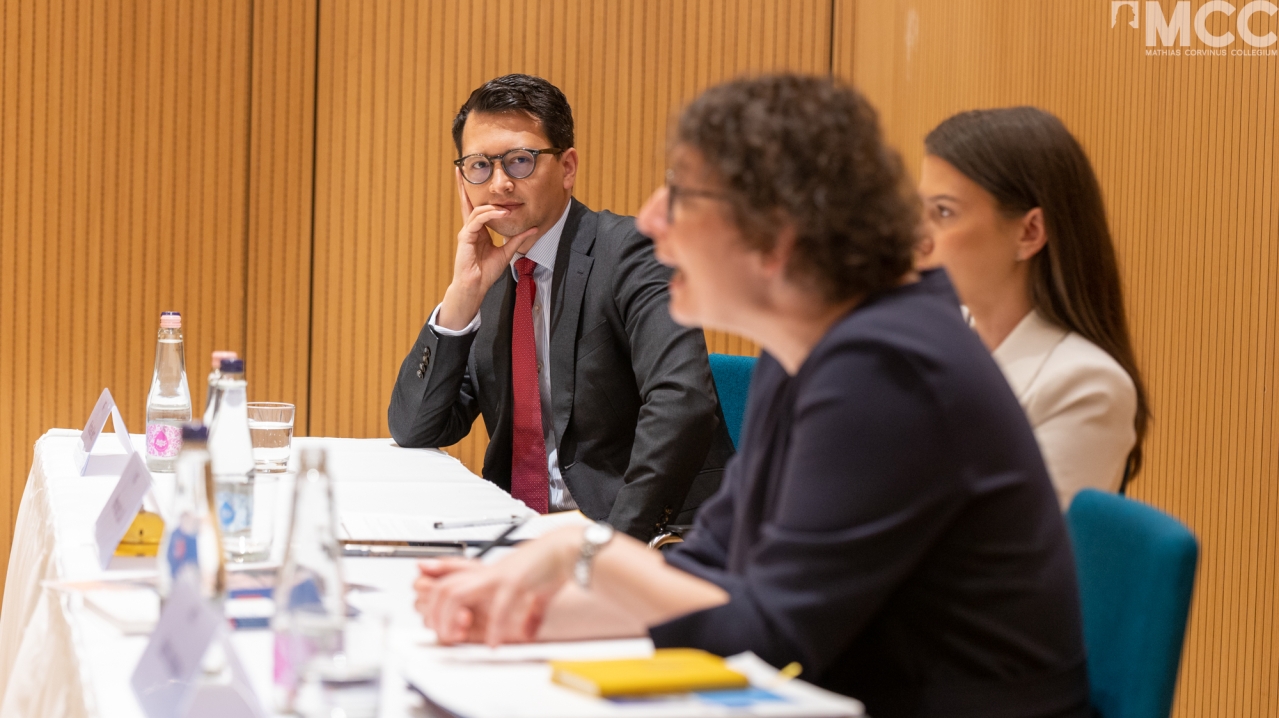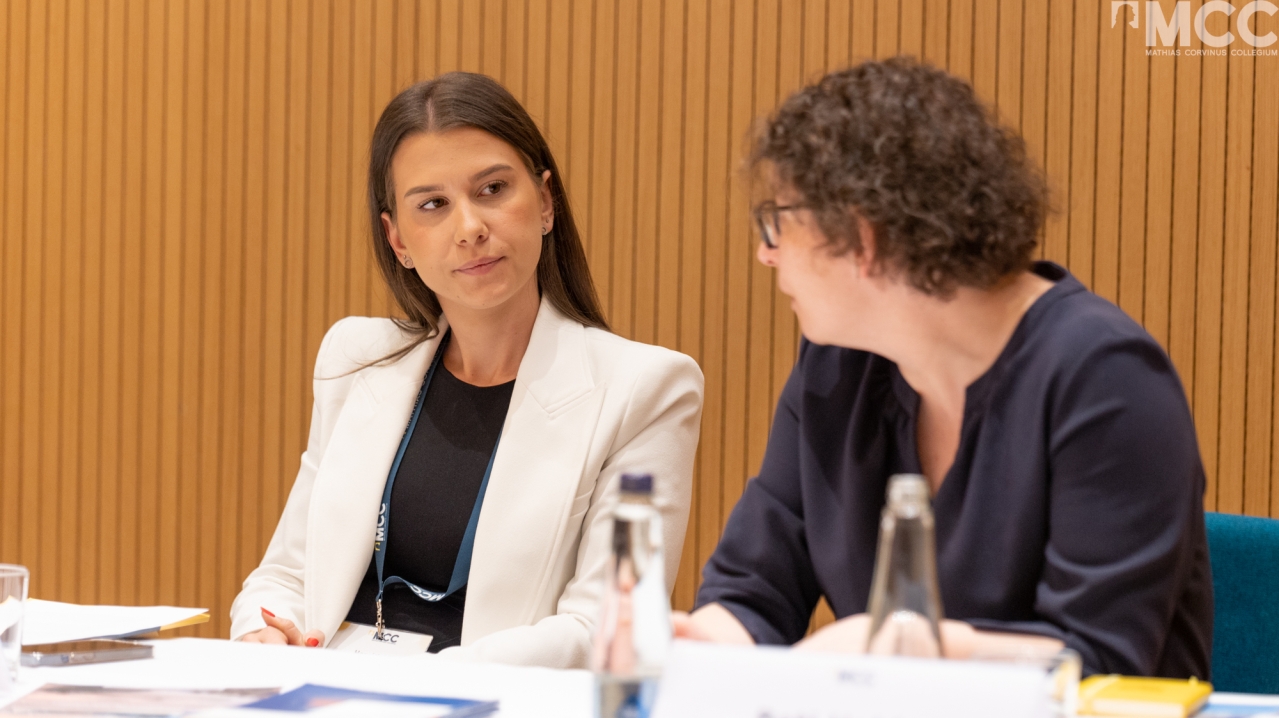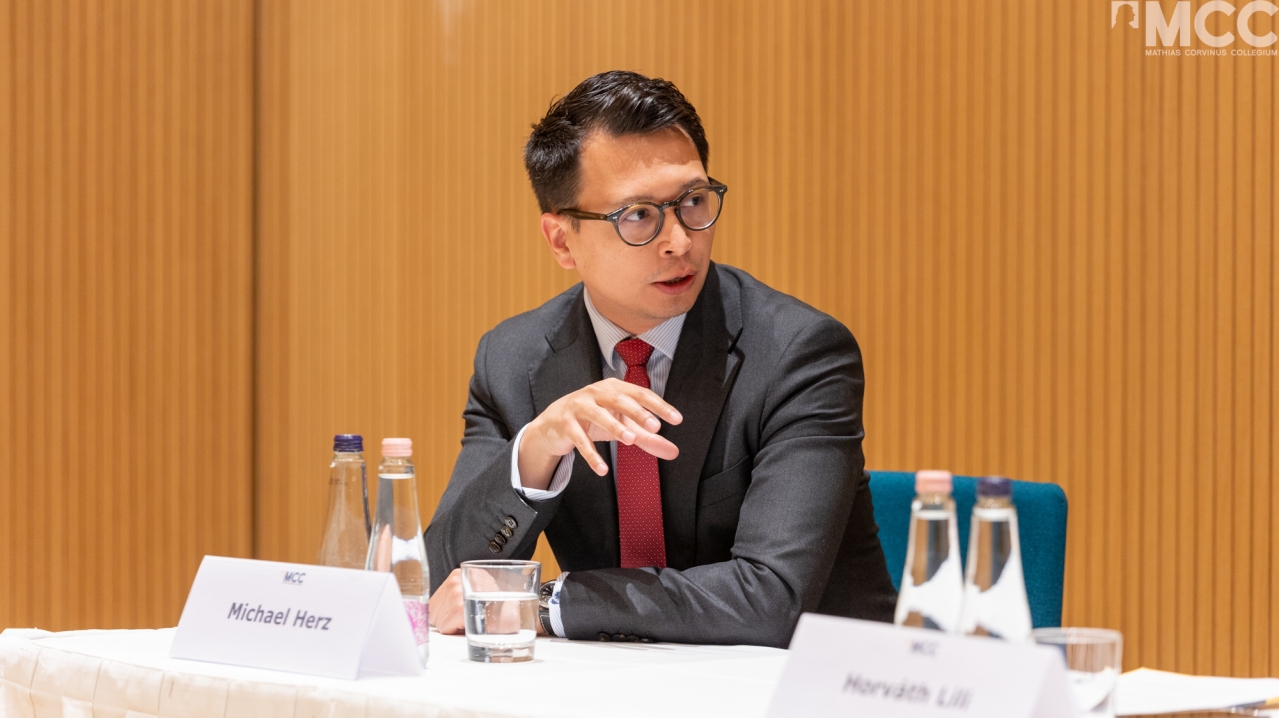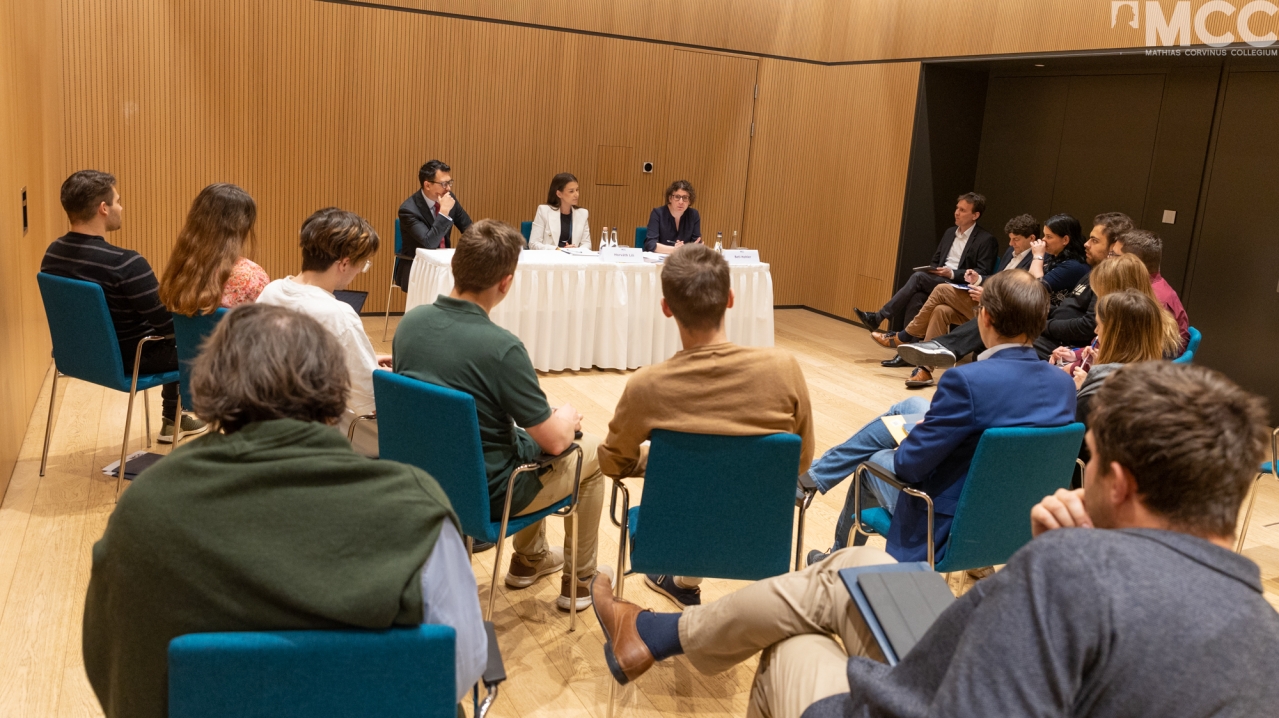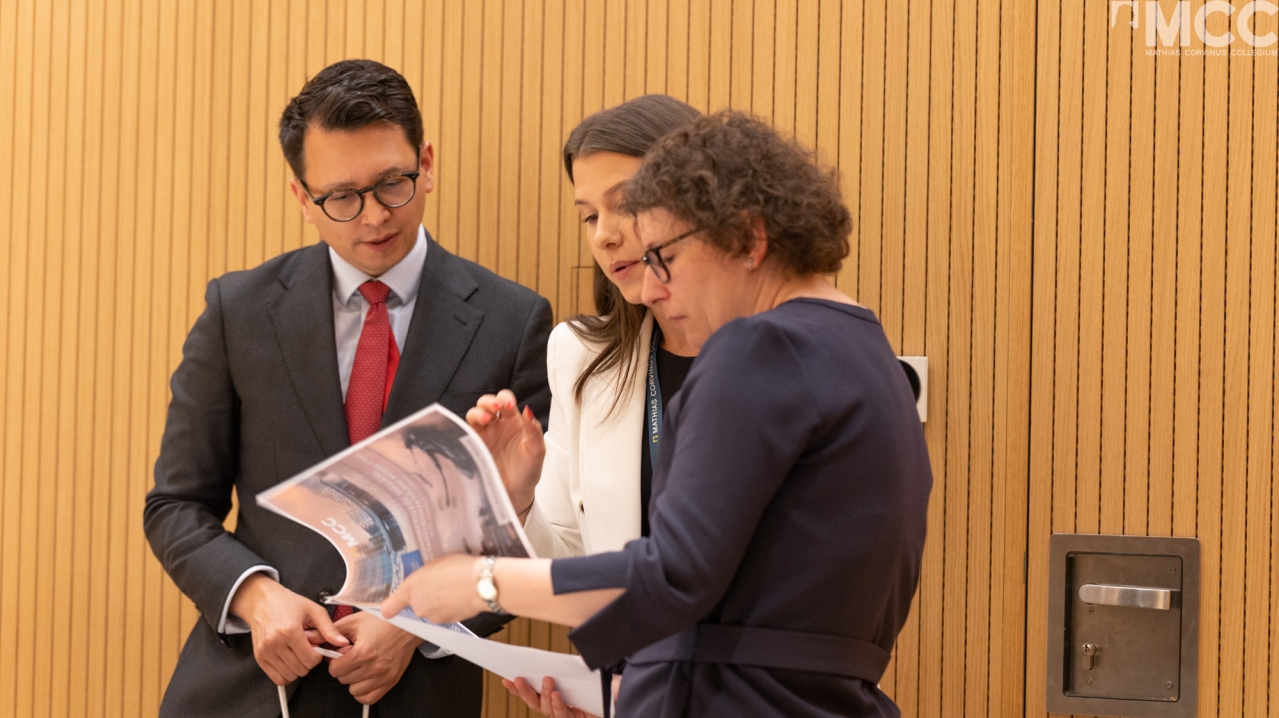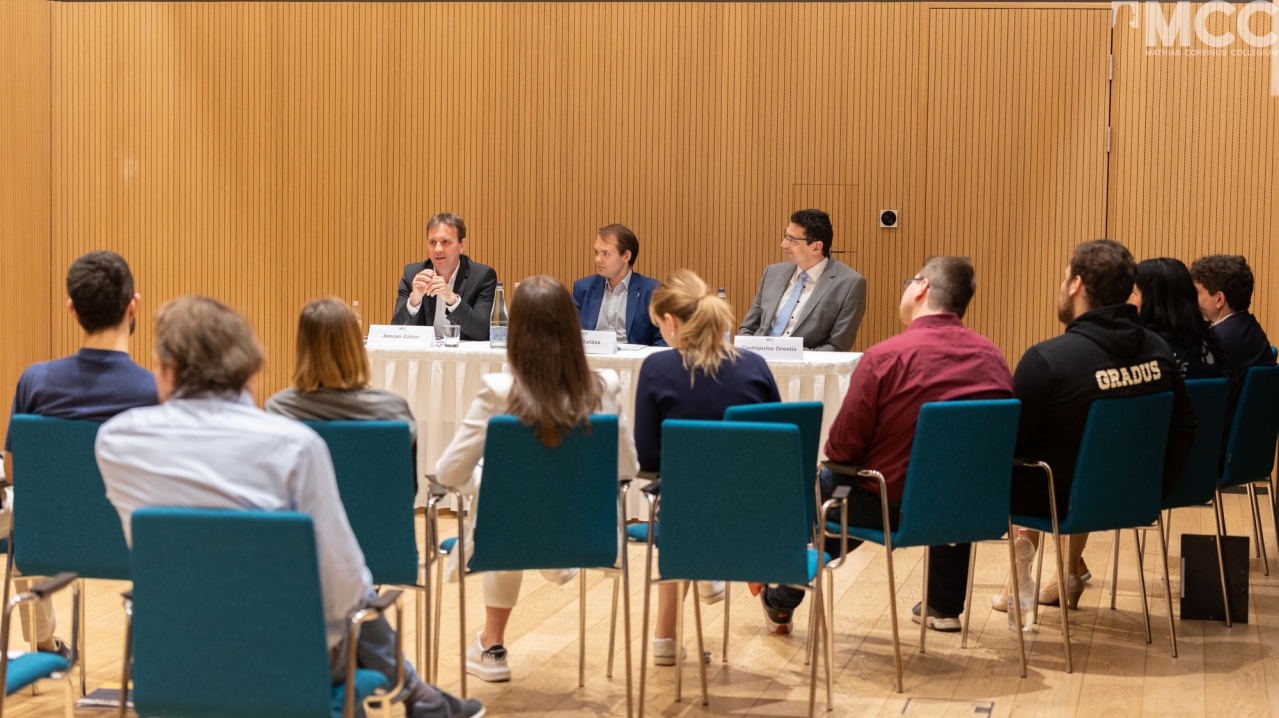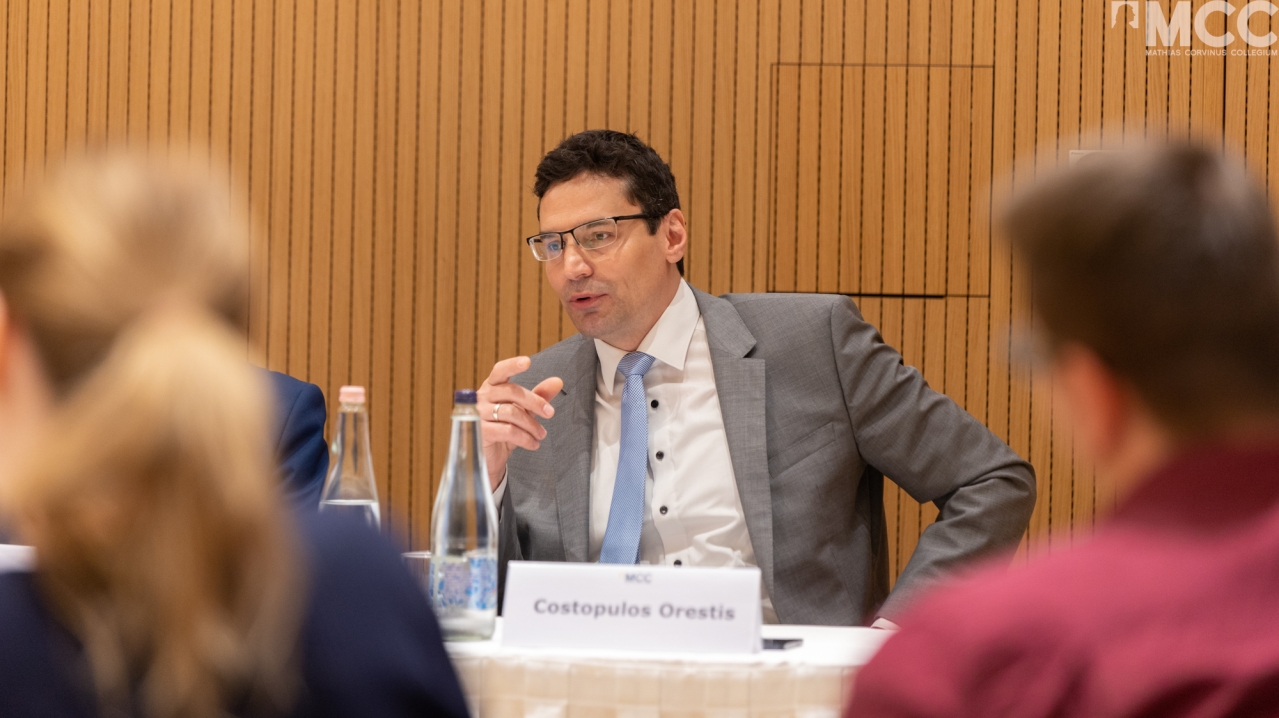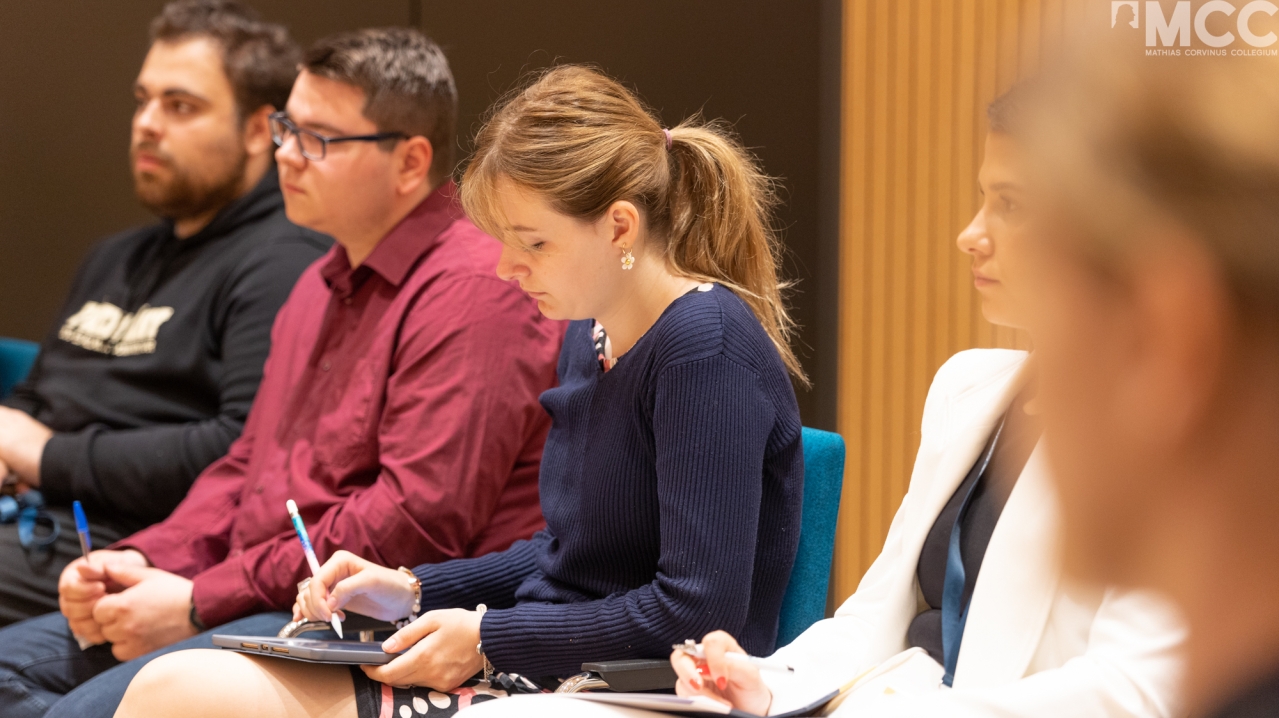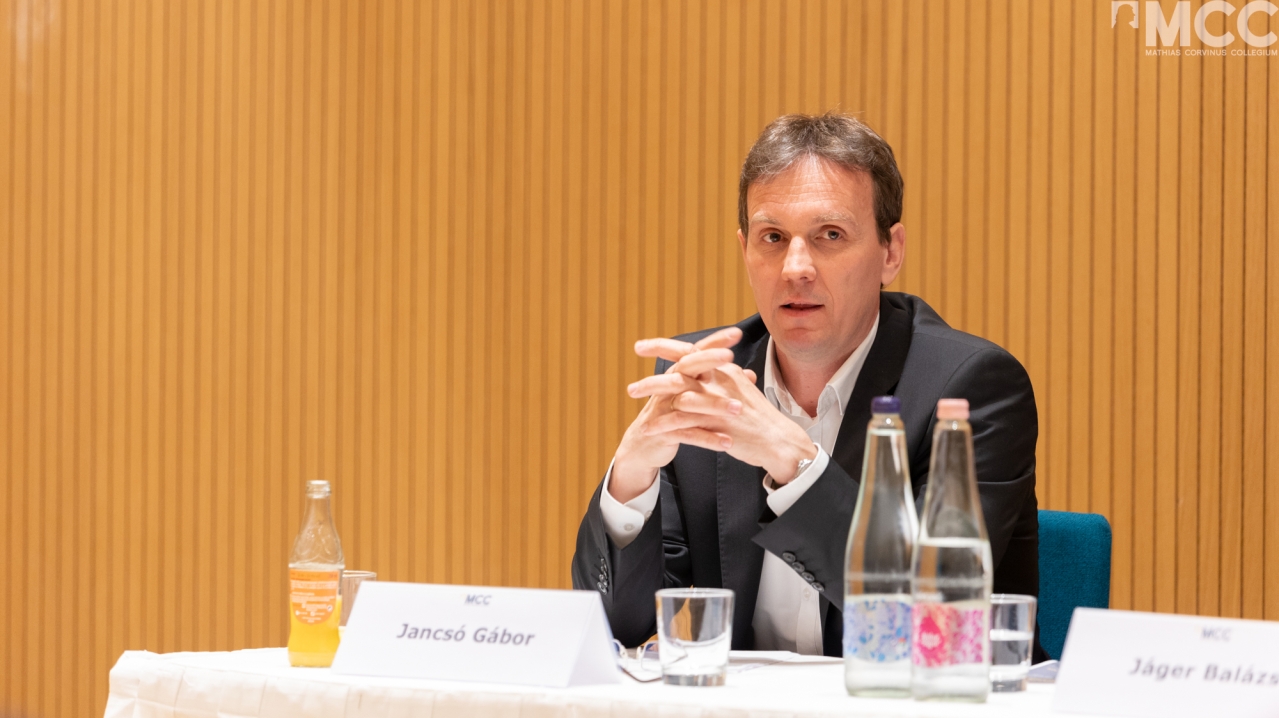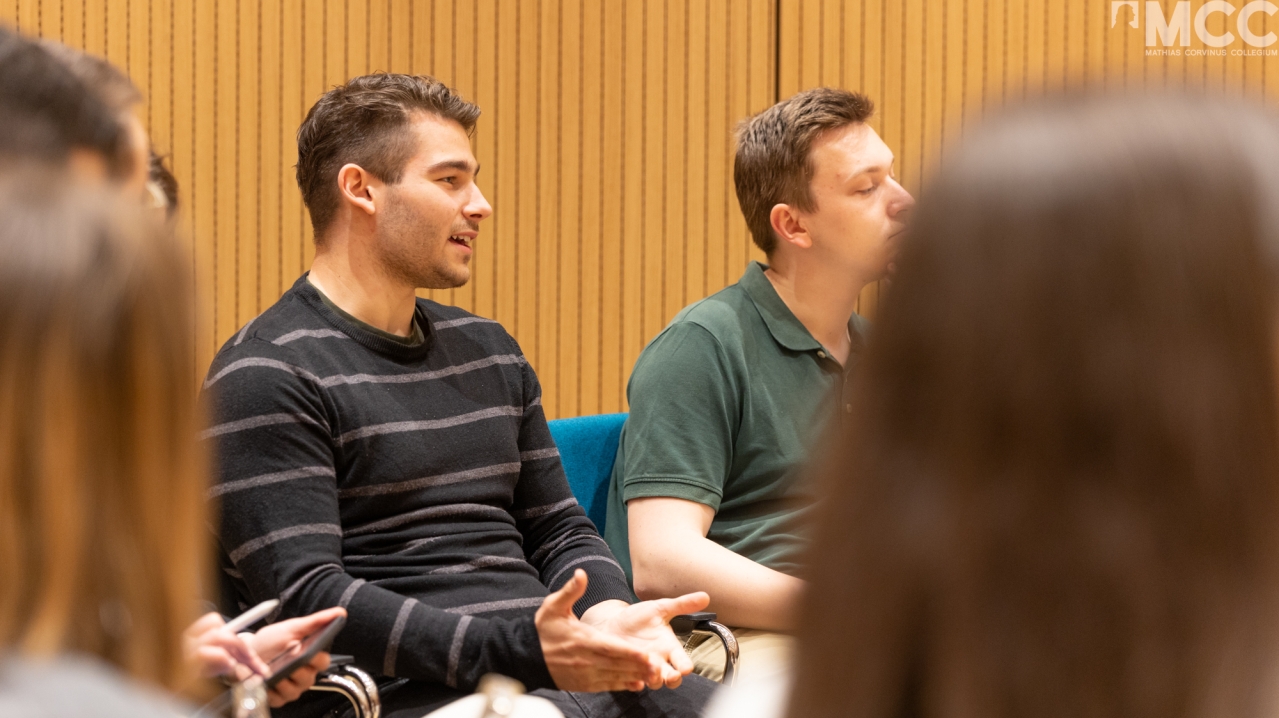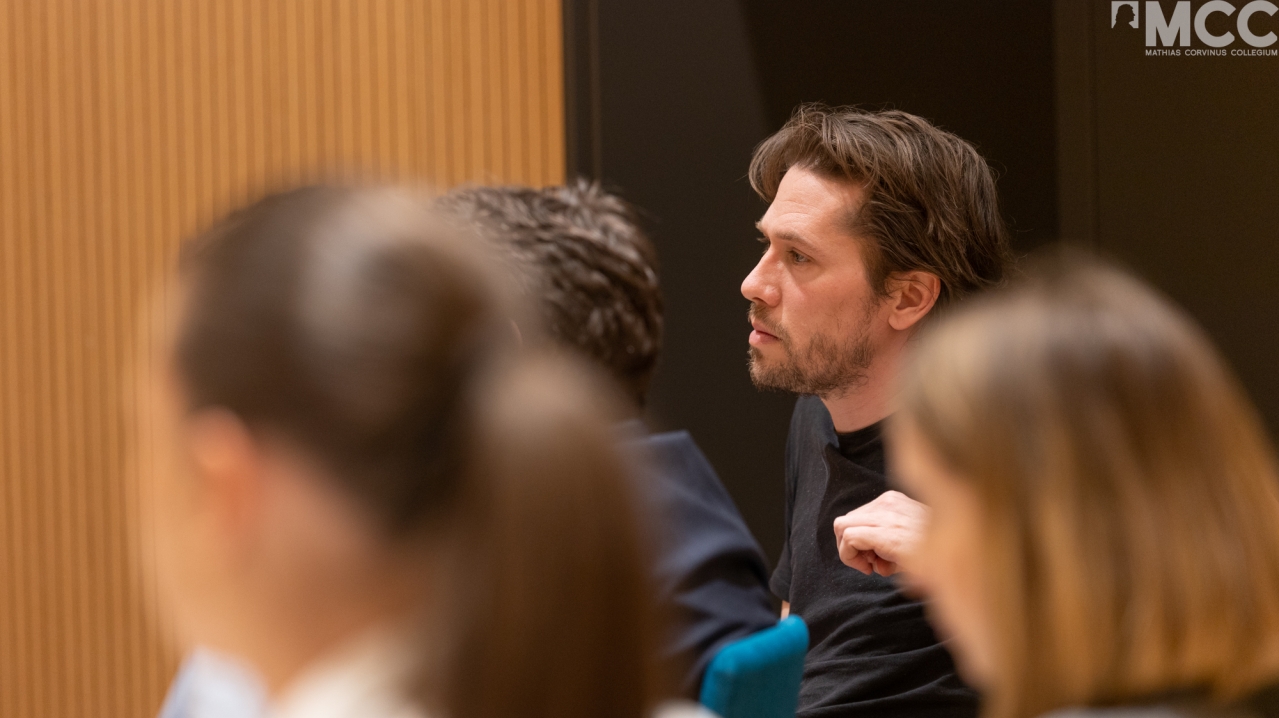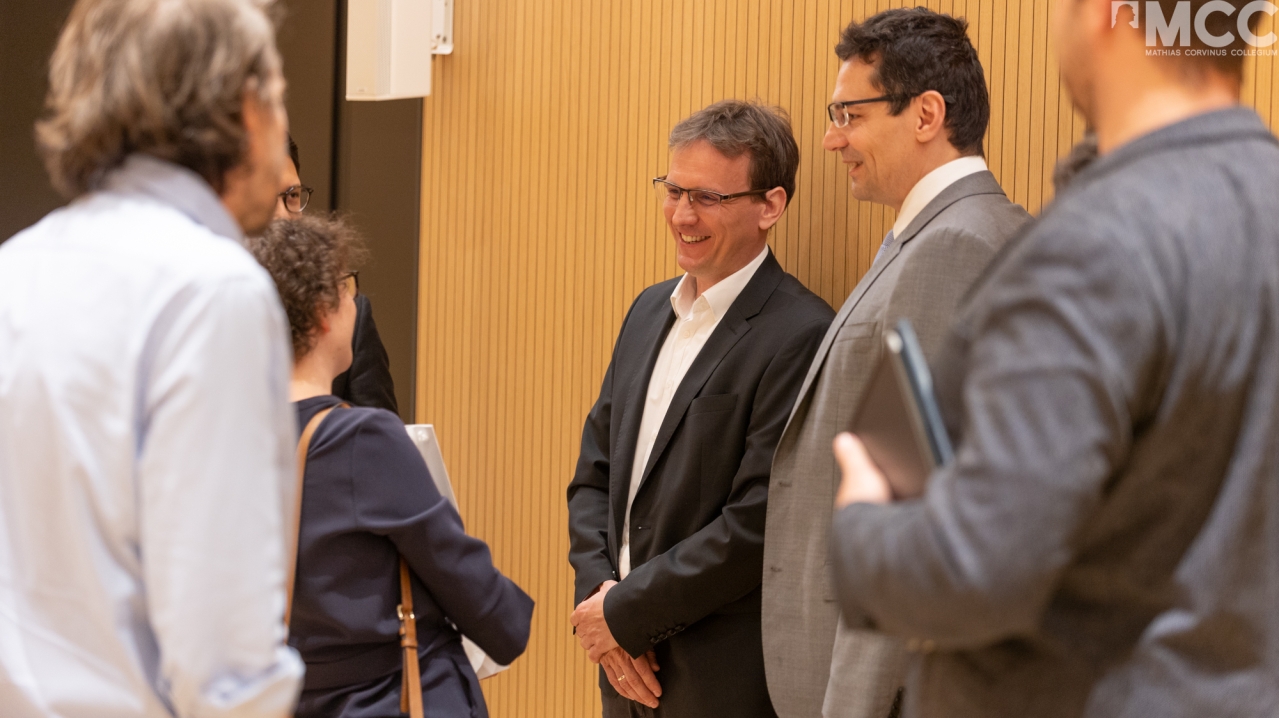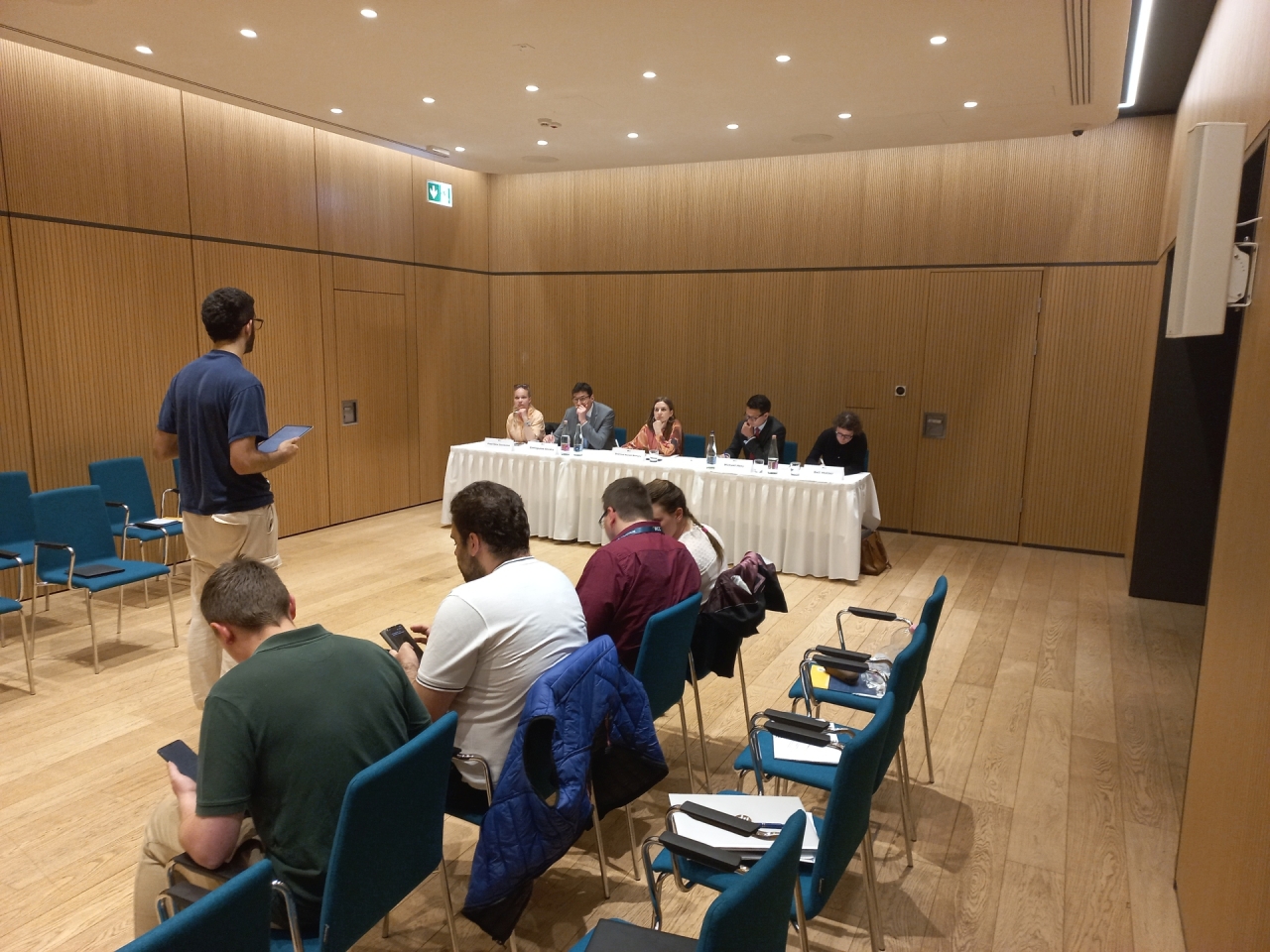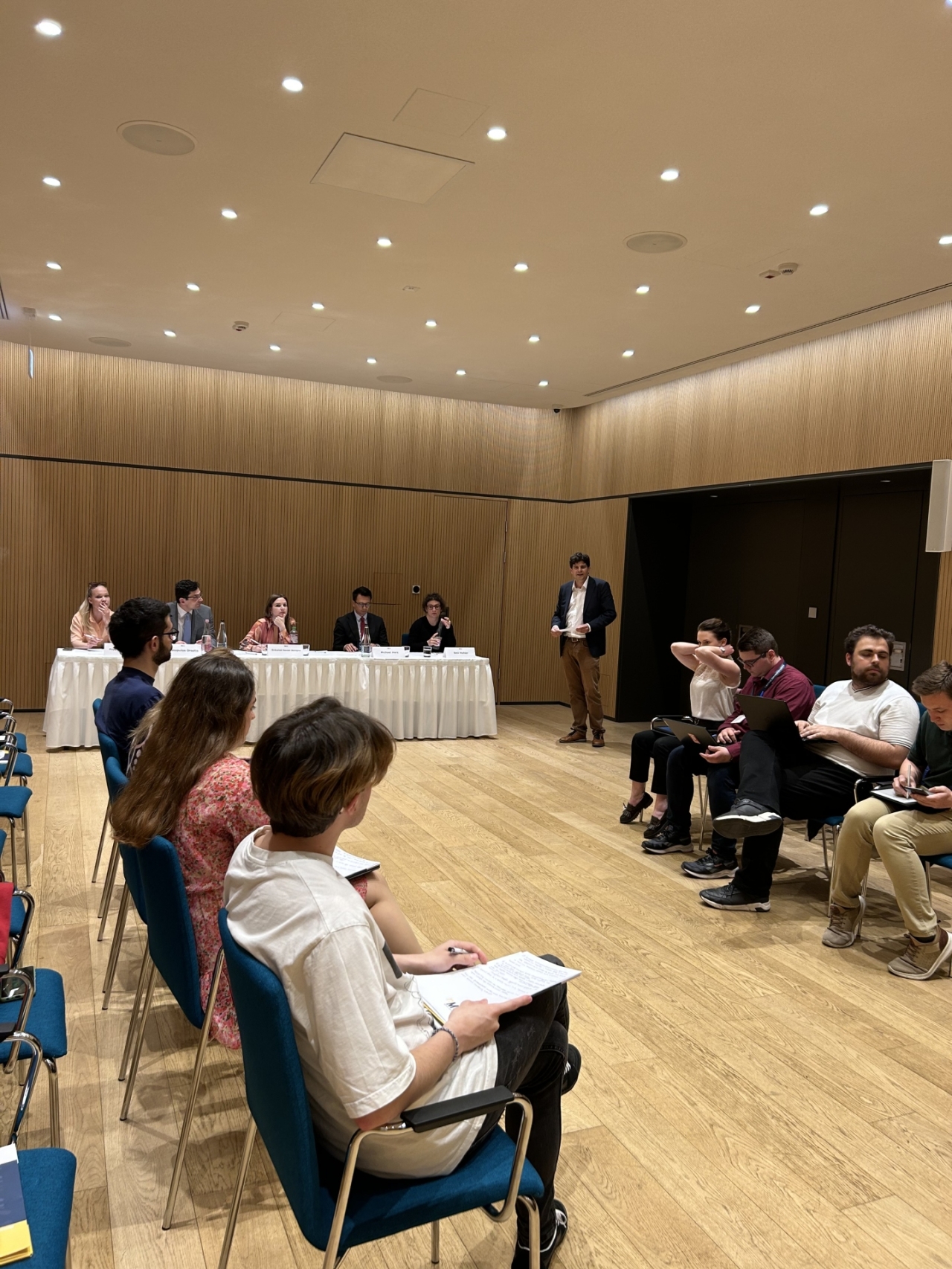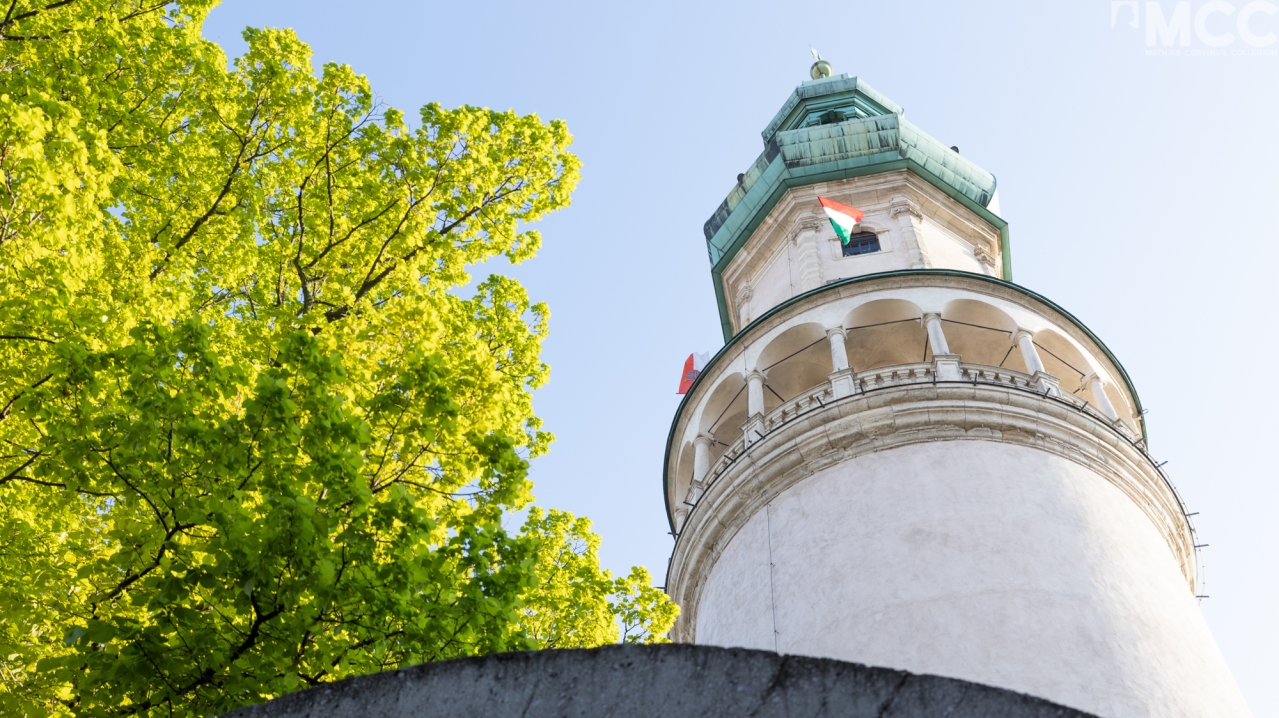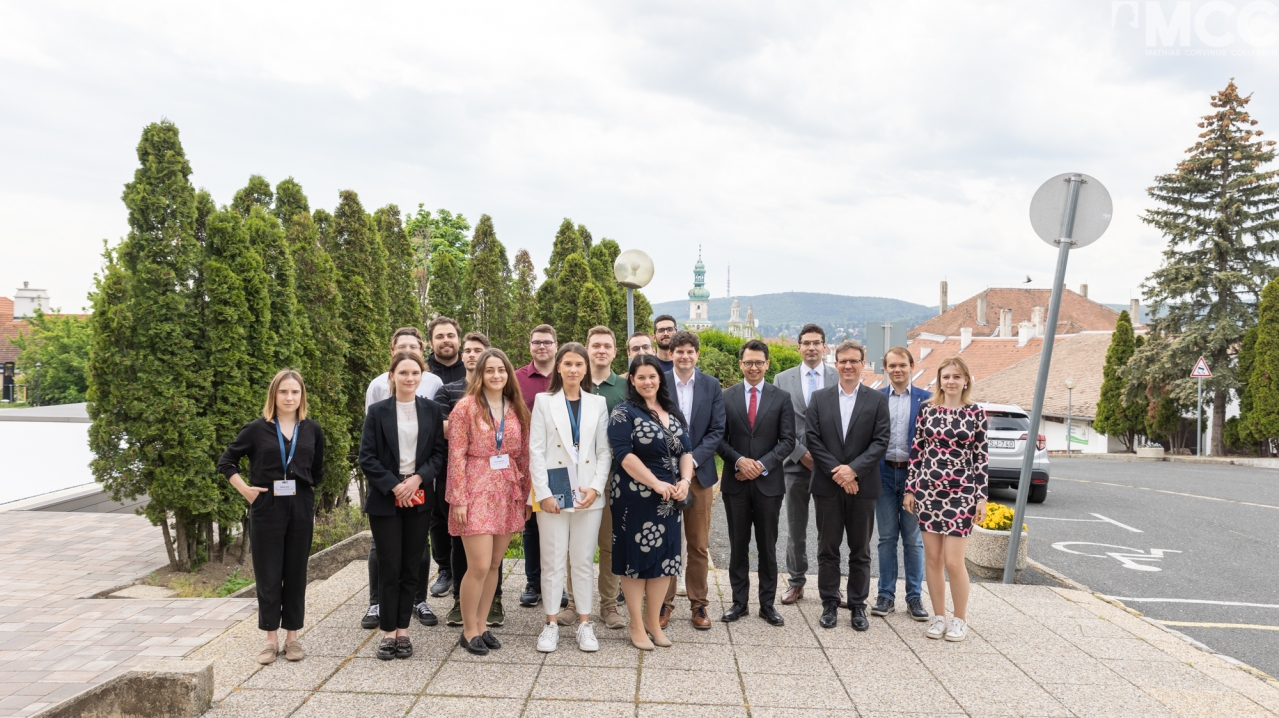Reading time: 5 minutes
The study weekend organized by the Center for International Law in the historic city of Sopron focused on the development and challenges of international criminal law, the problem of historical justice in Hungary as well as on timely geopolitical questions. Renowned Hungarian and foreign, theorists and practitioners participated in various panel discussions, MCC students could take part in an exciting debate contest and learn about internship opportunities. But there was also time for sightseeing and excursion.
The MCC students who participated in the study weekend organized by the Center for International Law could learn about the often difficult and challenging path of the development of international criminal law from Nuremberg to The Hague. They were introduced into the constitutional questions and dilemma of historical justice in Hungary, the distinctive features of the “Supreme Crimes” as well as the international criminal adjudication, but they could also gain insights into the complex relationship between domestic legislation and domestic law enforcement and international criminal law. Furthermore, with regard to the current conflict in Ukraine, students were also able to explore whether “the containment doctrine has been contained” and what role and relevance historical experience along with the insights of various thinkers have in understanding and decoding the Ukrainian conflict.
The study weekend first explored and shed light on the domestic historical experience. Attila Horváth, Professor of Legal History and Justice of the Constitutional Court, explained the complex interrelations and difficulties of international criminal law and historical justice. He shed light on the inhuman crimes committed under the communist regime and the political and constitutional debates around accountability after the change of regime. Beyond the relevant judgements of the Constitutional Court, the problem of the statute of limitations, the domestic criminal trials and the modifications adopted in the Fundamental Law, Professor Attila Horváth also explained how the dilemma of historical justice was explored in other Central-European countries.
Beti Hohler, trial lawyer for the ICC’s Office of the Prosecutor and Michael Herz, legal officer in the Office of Public Counsel for the Defence at the International Criminal Court discussed the evolution of the “Supreme Crimes” while they both shared fascinating stories and interesting anecdotes. The panel discussion highlighted the unique historical circumstances that gave impetus to international criminal adjudication throughout the 1990s, which eventually led to the establishment of the standing International Criminal Court. The experts emphasized the importance of the principle of complementarity, as well as the interdependence and dialogue between various international criminal tribunals. With regard to the novel challenges such as the question of “ecocide” or the use of autonomous weapons, they both stressed that international criminal law and tribunals, like other areas of international dispute resolution, rest on the consensus of States, and therefore it is their commitment that can ultimately underpin the evolution of international law.
Gábor Jancsó, Deputy Secretary of State for Criminal Law Legislation, Ministry of Justice of Hungary, and Orestis Costopulos, Deputy Prosecutor General of the Central Chief Prosecution Office of Investigation provided the students with insights into international aspects of domestic legislation and law enforcement. They first addressed the mission and objectives of international criminal law in light of the domestic historical experiences of Hungary. Then they explained how national legislation ensures the prosecution of international crimes under domestic law as well as the difficulties that might arise in transforming and implementing international law. They shed light on the major differences between domestic and international criminal prosecutions as well as between national prosecutions for international crimes and traditional criminal investigations.
Last, but certainly not least, Michael N. Anton, lecturer and researcher at Hillsdale College and Claremont Institute, former senior national security official to former US Presidents George W. Bush and Donald J. Trump as well as Lénárd Sándor, Head of Center for International Law discussed the adoption and significance of the containment doctrine in the 1950s and its omission from the current armed conflict in Ukraine. The discussion examined the life and role of the so-called “Wise Men”, including especially George Kennan, in laying down the post-WW II foreign policy principles as well as in developing the US doctrine of containment against Soviet-Communist expansionism. The discussions also shed light on how George Kennan saw the nature and insecure behavior of Russia, and how, although they were political adversaries, President Ronald Reagan implemented and fulfilled the policy of containment that Kennan had originally devised. The discussion concluded with an analysis of how US foreign policy has now “contained” the long-standing doctrine of containment.
These expert panels were followed by the students’ debate competition. The students did need to argue in favor of and against whether it is appropriate to set up a special international tribunal to carry out investigations and prosecutions for the international crimes committed during the armed conflict in Ukraine. The captivating and exciting team contests proved to be instructive for everyone and it was followed by a sightseeing tour in Sopron. On the last day of the study weekend, the experts from of International Criminal Court provided information on various internship opportunities that are offered by international criminal tribunals to law students and fresh graduates. The study weekend ended with an excursion in the Lővér.
The MCC Deputy Director General, Péter Lánczi, and the Head of the Center for Criminal Law, András Csúri also attended the study weekend. We would like to thank the head of the Academic Directorate, Mrs. Benigna Havasi Grécziné and Ms. Zsuzsanna Dóra Papp who represented the International Directorate for their work as members of the jury. We would also like to thank the MCC students who helped with the organization and moderation of the panel discussions.
